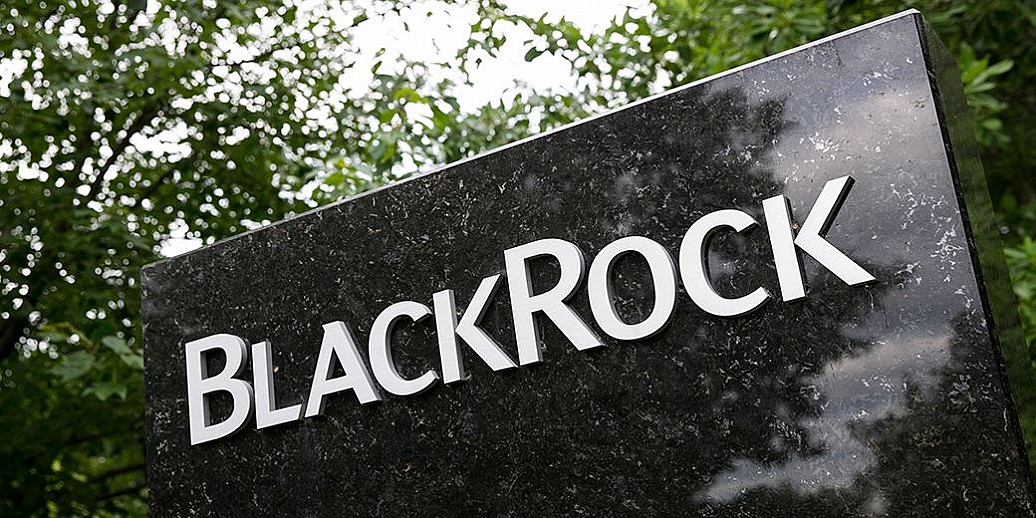BlackRock’s Digital Asset ETFs Surpass Grayscale in AUM
18.08.2024 10:00 2 min. read Alexander Stefanov
BlackRock, recognized as a leading global asset manager, recently reached a significant milestone:
Its digital asset exchange-traded funds (ETFs) have now surpassed those of longtime leader Grayscale in total assets under management (AUM).
Although BlackRock only offers two funds – IBIT (spot Bitcoin ETF) and ETHA (spot Ethereum ETF) – their combined AUM of $21.6 billion slightly exceeds the $21.3 billion managed by Grayscale’s four funds: GBTC, BTC Mini, ETHE and ETH Mini, according to Arkham Intelligence.
Morgan Stanley recently disclosed that it has nearly liquidated its $269.9 million position in GBTC, currently holding 5.5 million shares of IBIT, valued at approximately $187.1 million at current prices. Similarly, Goldman Sachs disclosed last week that it holds nearly 7 million shares in IBIT worth about $235 million, in addition to approximately $35 million in the Grayscale convertible fund and about $150 million in other spot BTC ETFs.
Nate Gerassi, president of investment adviser The ETF Store, noted on Platform X that BlackRock’s IBIT has experienced just one day of net outflows since launch. That observation is backed by SoSoValue data, though the ETF has also logged 26 days with no moves to date.
While IBIT is currently the leader among spot bitcoin ETFs, BlackRock’s spot ethereum fund, ETHA, ranks only third in AUM, based on SoSoValue data. Although ETHA has yet to have any days with negative outflows, it has had four days with net-zero trading since launching on July 22, nearly a month ago.
-
1
UK Regulators Unveil PISCES – A New Era for Private Share Trading
11.06.2025 15:00 2 min. read -
2
Trump Turns 79 With Billions in Crypto and a $45M Parade
14.06.2025 22:00 2 min. read -
3
Polygon Breaks from Decentralization as Sandeep Nailwal Assumes Full Control
11.06.2025 20:00 2 min. read -
4
KuCoin Plants Its Flag in Bangkok With a Licensed Thai Exchange
14.06.2025 13:00 1 min. read -
5
Nvidia CEO Urges UK to Invest in AI Infrastructure or Risk Falling Behind
10.06.2025 9:00 1 min. read
What Will Happen With the Stock Market if Trump Reshapes the Fed?
Jefferies chief market strategist David Zervos believes an upcoming power shift at the Federal Reserve could benefit U.S. equity markets.
U.S. Bank Advises Clients to Drop These Cryptocurrencies
Anchorage Digital, a federally chartered crypto custody bank, is urging its institutional clients to move away from major stablecoins like USDC, Agora USD (AUSD), and Usual USD (USD0), recommending instead a shift to the Global Dollar (USDG) — a stablecoin issued by Paxos and backed by a consortium that includes Anchorage itself.
Vitalik Buterin Warns Digital ID Projects Could End Pseudonymity
Ethereum co-founder Vitalik Buterin has voiced concerns over the rise of zero-knowledge (ZK) digital identity projects, specifically warning that systems like World — formerly Worldcoin and backed by OpenAI’s Sam Altman — could undermine pseudonymity in the digital world.
What Are the Key Trends in European Consumer Payments for 2024?
A new report by the European Central Bank (ECB) reveals that digital payment methods continue to gain ground across the euro area, though cash remains a vital part of the consumer payment landscape — particularly for small-value transactions and person-to-person (P2P) payments.
-
1
UK Regulators Unveil PISCES – A New Era for Private Share Trading
11.06.2025 15:00 2 min. read -
2
Trump Turns 79 With Billions in Crypto and a $45M Parade
14.06.2025 22:00 2 min. read -
3
Polygon Breaks from Decentralization as Sandeep Nailwal Assumes Full Control
11.06.2025 20:00 2 min. read -
4
KuCoin Plants Its Flag in Bangkok With a Licensed Thai Exchange
14.06.2025 13:00 1 min. read -
5
Nvidia CEO Urges UK to Invest in AI Infrastructure or Risk Falling Behind
10.06.2025 9:00 1 min. read


